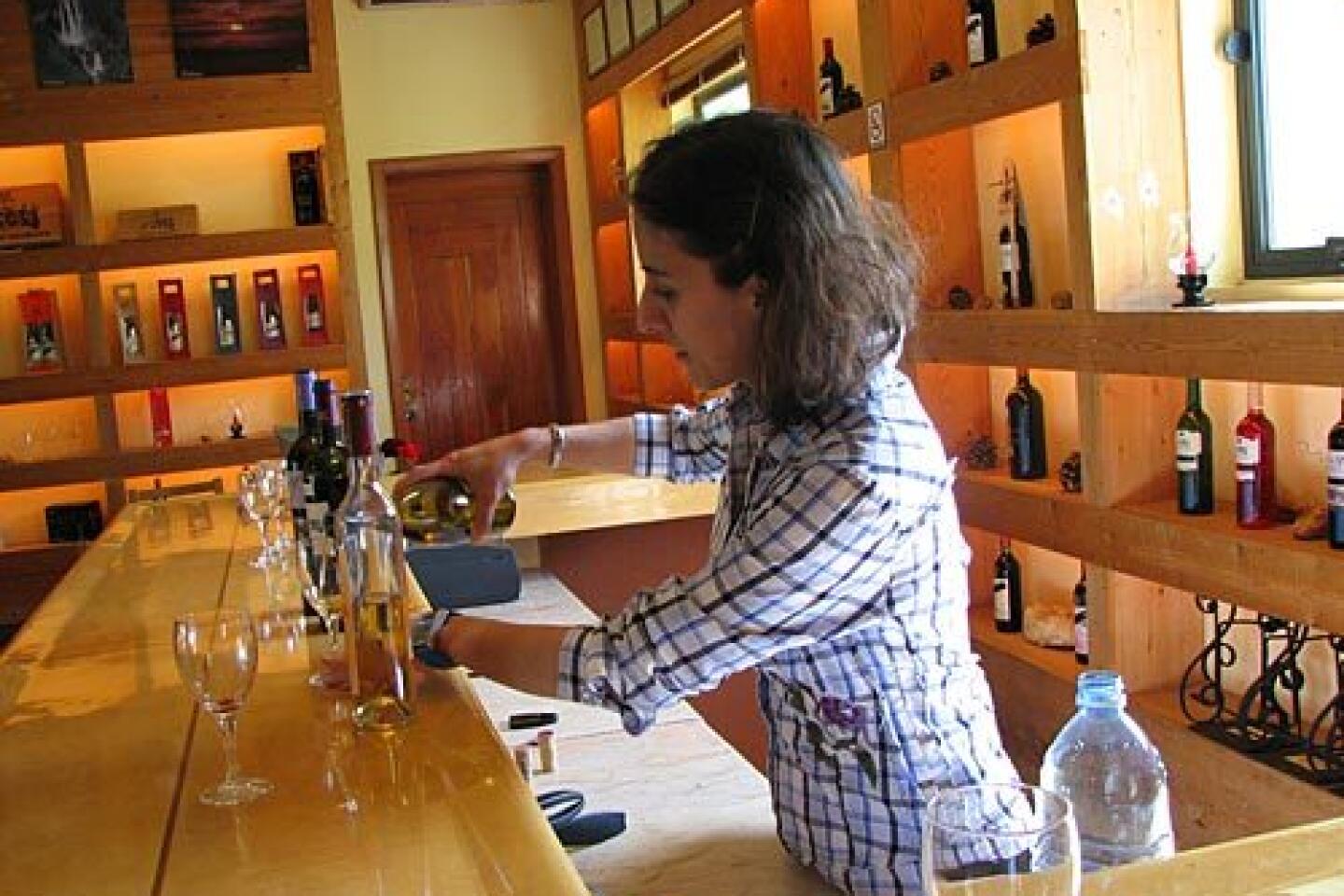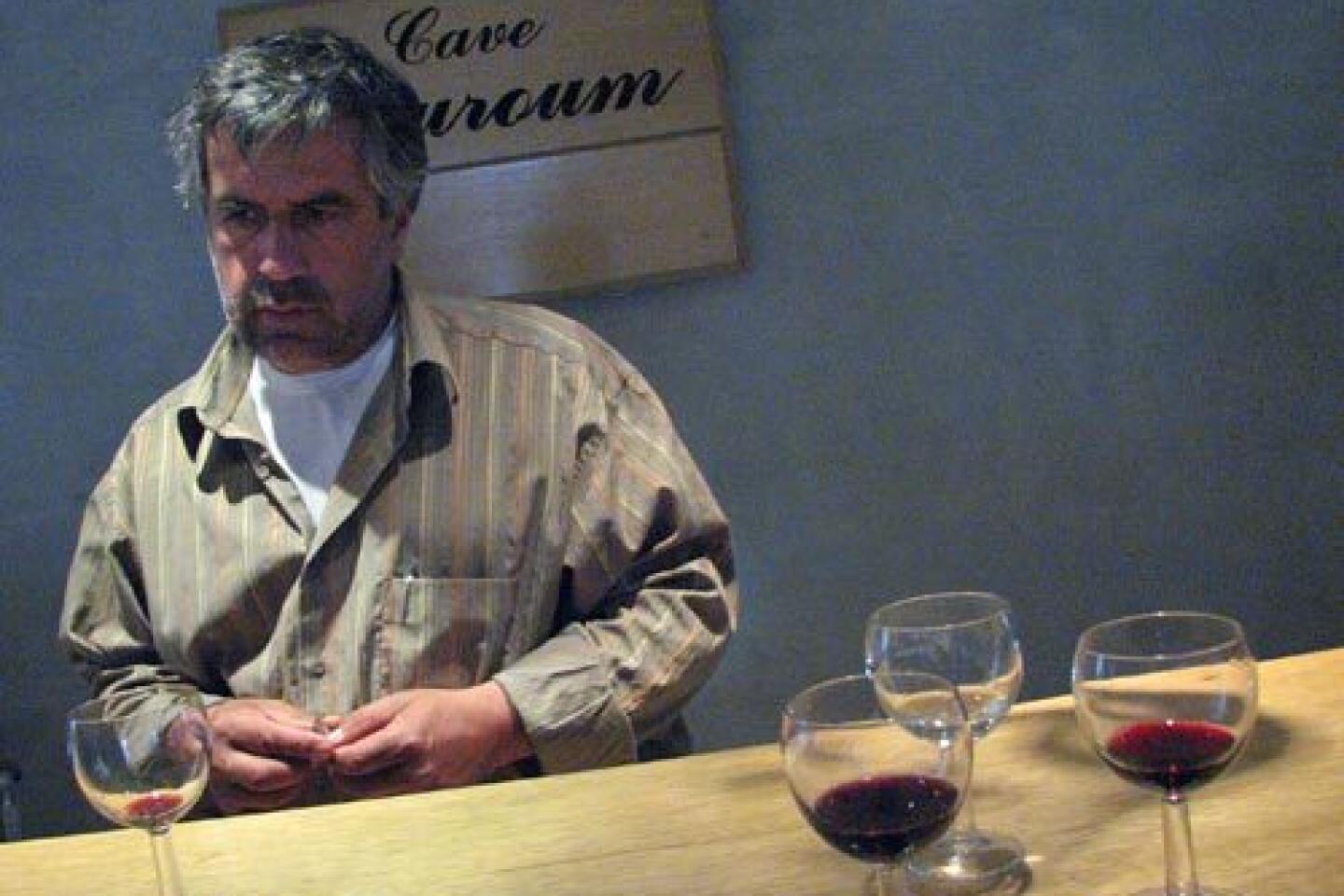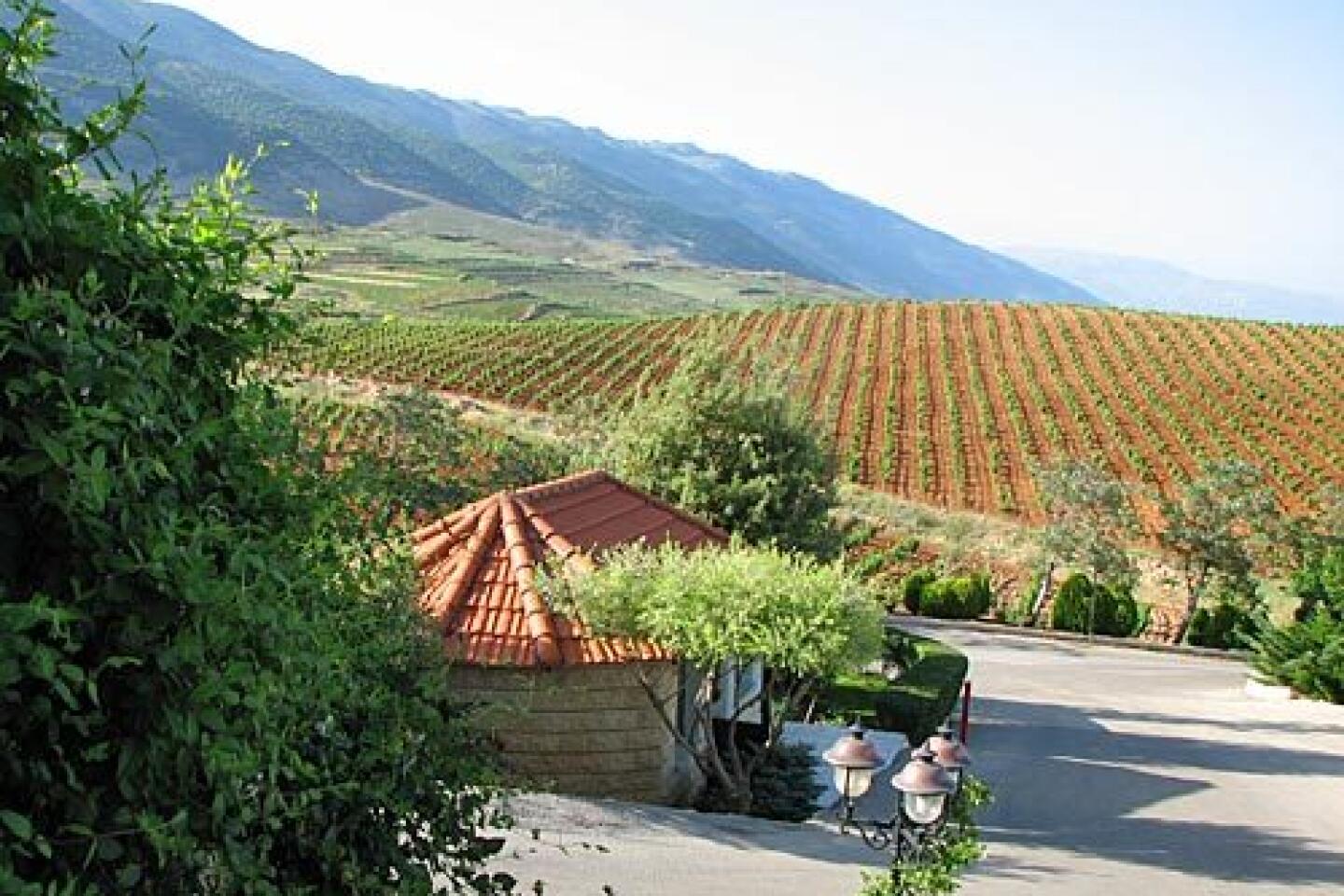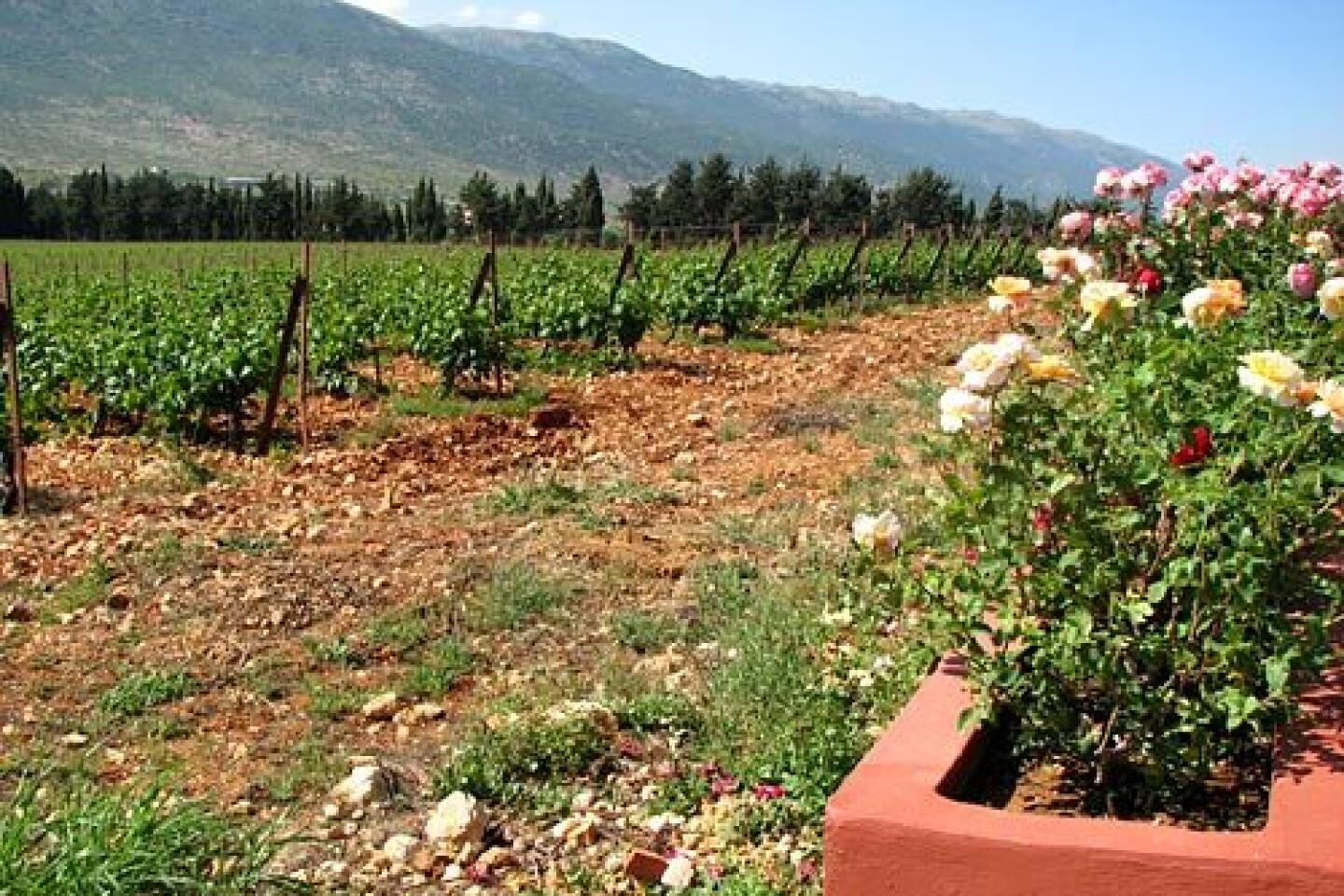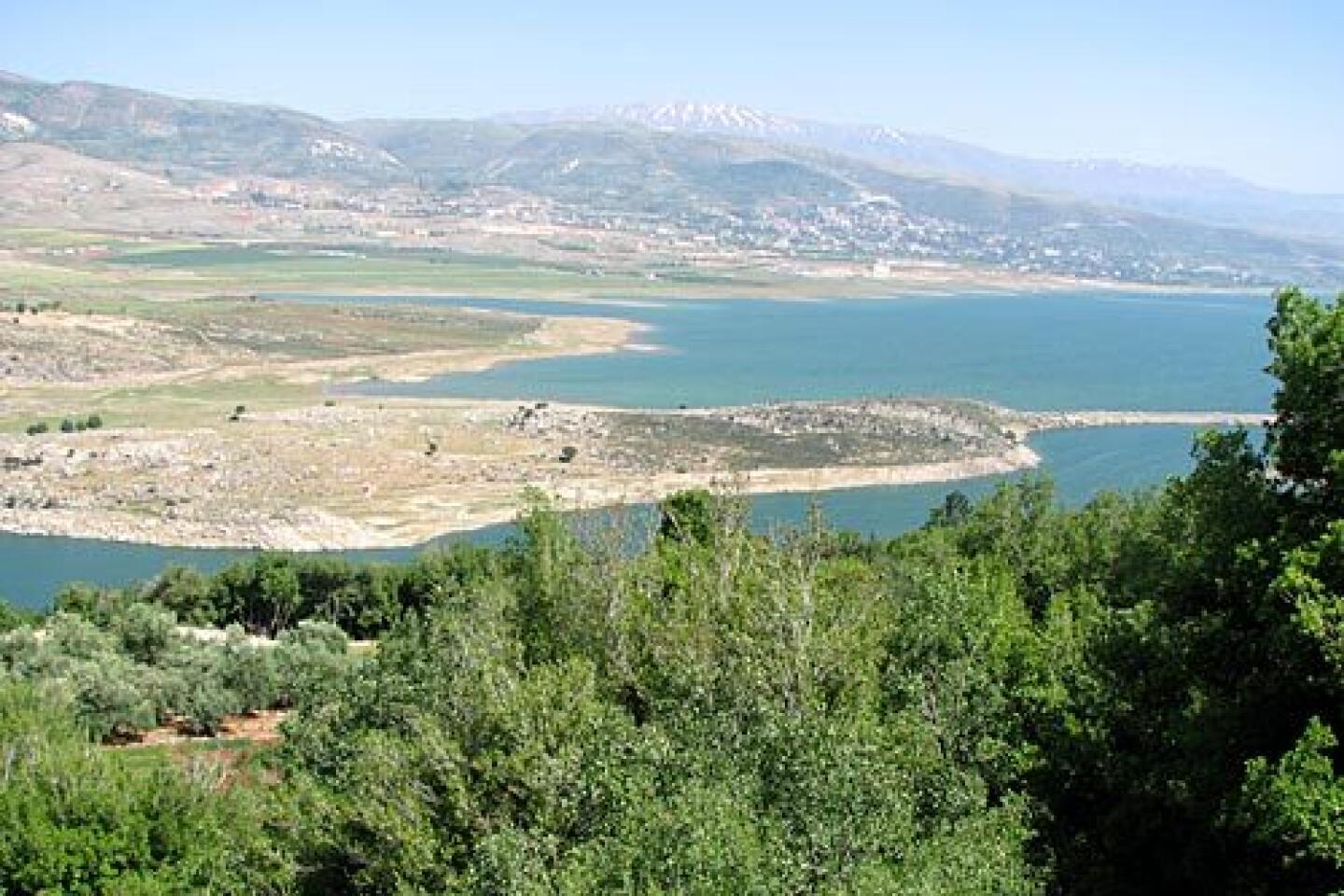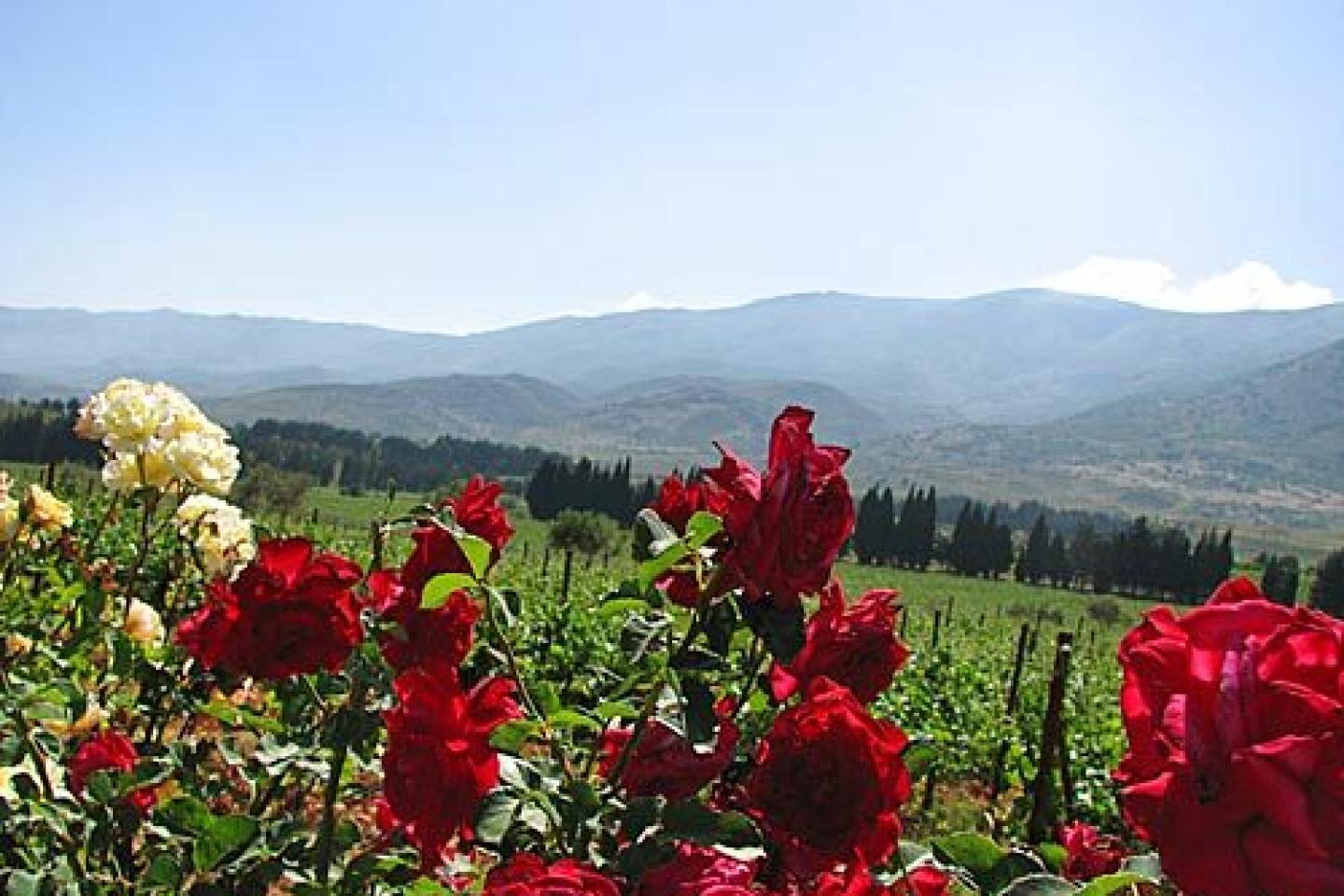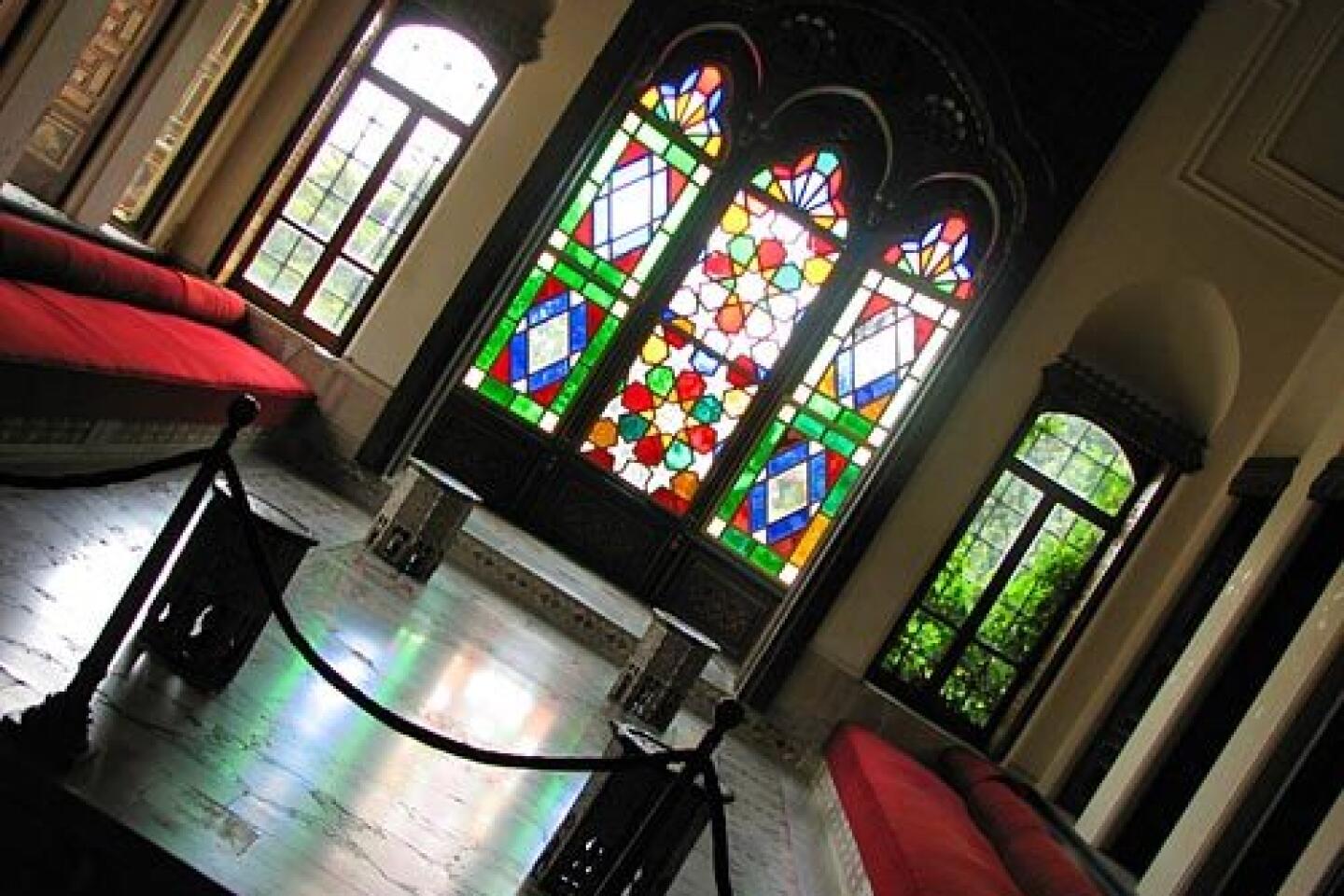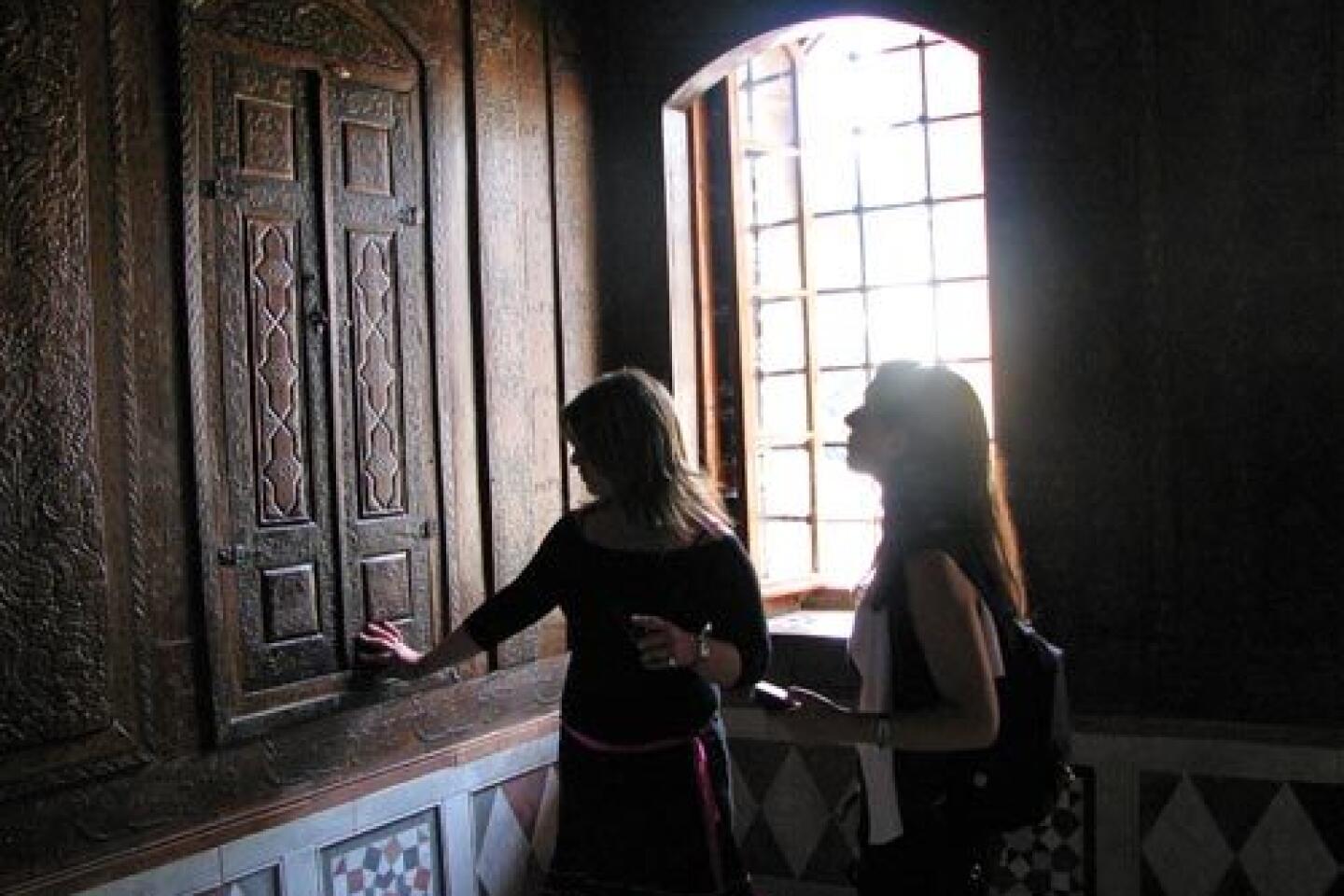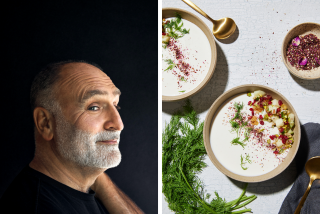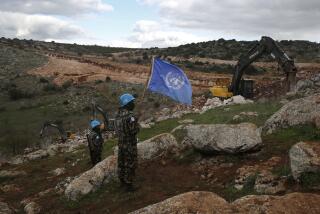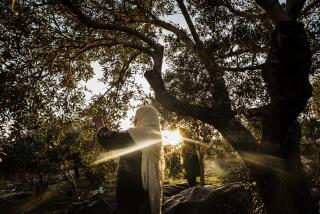War-torn Lebanon’s Bekaa Valley is a wine country respite
BEKAA VALLEY, Lebanon — The thick blanket of fog hampering our travels finally begins to recede. A checkpoint emerges from the haze. A gaggle of Lebanese soldiers in uniform standing guard calmly waves us through. We descend further toward the lush expanse of farmland and lakes emerging below. The vineyards of the Bekaa Valley beckon.
It is mid-May in Lebanon, and snow still streaks the mountains to the east marking the Syrian frontier.
A day earlier, I was caught up in the fighting between Lebanese troops and Islamic extremists in and around a refugee camp up north. Bullets pinged and mortars crashed. Three nights ago, an explosion rocked a shopping mall near where we were dining. Ambulance sirens screamed and panicked residents fled for cover.
But all that seems fairly far away. I am with my wife, Delphine Minoui, of the French paper Le Figaro and my friend Ed Wong of the New York Times. We are all war correspondents, veterans of the Iraq conflict. But today we are trying to get our minds out of war. We are on a brief tasting tour through Lebanon’s famous wine country, which is nurtured by cold, wet winters and hot, dry summers.
Long before it gained a reputation as a bastion for the militant Islamic group Hezbollah, the Bekaa Valley was known for its red wines. Historians estimate that wine was first produced in Lebanon about 4,000 years ago. The ruins of a temple devoted to the Roman god Bacchus stand in the city of Baalbek.
Of course, friends thought we were insane to indulge in wine tourism with bombs and bullets flying. But we needed a break, and alongside its manifold troubles, Lebanon has always been a major tourist destination, often called the Switzerland of the Middle East.
It’s easy to see why. The Lebanese are festive, sophisticated and friendly, often toggling between Arabic and perfect English and French. Its sunny beaches are a stone’s throw from its famed ski resorts.
Lebanon has a modern, convenient airport with direct connections to major European and Middle Eastern capitals. Amman, Jordan, and Damascus, Syria, are only a couple of hours away by car. Lebanon is a small country, with almost all of its attractions within a two-hour drive of the capital, Beirut.
Because of the recent violence, including the war between Israel and Hezbollah last summer and the fighting in the refugee camps, the swanky hotels of Beirut have cut their rates dramatically, sometimes by as much as two-thirds.
We stayed at the luxurious Albergo (www.albergobeirut.com), a fabulously well-appointed 33-suite boutique hotel in the upscale Achrafieh district, for less than $200 a night instead of the ordinary price of well more than $400.
Hotels such as the modern Crowne Plaza in the lively Hamra district and the revamped Commodore, which was home to most journalists during the Lebanese civil war and is now run by Le Meridien, can be had for $100 or less a night if you haggle.
Rather than rent a car and risk driving off a mountain road after swilling wine all day, we arranged for a taxi with one of the many reputable car services in Beirut. We went with Lord Taxi (011-961-1-217770). Our driver shows up in a late-model Mercedes-Benz with air-conditioning. He tells us with a laugh that his name is Jihad, which means Muslim holy war.
But he explains that he is a Christian whose parents were staunch Arab nationalists.
Before heading to the vineyards, we make a pit stop at the famous Ottoman-era castle at Beit Eddine (www.beiteddine.org), which plays host to performing arts groups throughout the summer.
The fortress, shrouded by evergreens and pine trees atop a terraced hillside 2,500 feet above sea level, is worth the half an hour or so in extra driving time it adds to a trip from Beirut to the vineyards.
Beit Eddine was the palace of the Bashir Shihab II, the Ottoman prince who reigned over the area known as Lebanon from 1788 to 1840. It is an elaborate labyrinth of gardens, baths and resplendent living quarters decorated with handcrafted cedar-wood carvings and pink marble. Fountains throughout the building serve as a primitive air-conditioning system.
Our tour guide speaks French much better than English, which is taught here as a third language. Ed and I think it’s quaint that Lebanon remains committed to its Francophone heritage but are grateful we’re with Delphine, a native French speaker.
By the time we leave the castle and descend into the Bekaa, it is already time for lunch. We opt to eat at the splendid Blue Lake Restaurant (011-961-8-860146), near the village of Saghbine. It is known for its trout and is surrounded by a huge outdoor terrace that looks upon Lake Karaoun. A meal including hearty appetizers and soft drinks costs about $15 per person.
Down the road is the Cave Kouroum (www.cavekouroum.com), among the newest of the Bekaa wine distilleries. Sami Reha and his brother launched the winery 10 years ago with a capacity to produce 5 million liters, though it’s able to procure only enough grapes and bottles to produce about 1 million bottles a year. Vintners plant in January and February, when the saplings arrive from France or Italy.
The summer war last year between Israel and Hezbollah didn’t directly affect the vineyards. Shipments were turned back before reaching their destinations. The vineyards also could not produce an increasingly popular Beaujolais-type wine. But fortunately, the war ended two days before the harvest began.
The war was nothing compared with the larger challenges of producing wine in the Muslim Middle East, where some grape growers refuse to sell to vineyards for religious regions.
But Reha, who says he is the only Muslin vintner in Bekaa, tells us that all the troubles are worth it once he tastes the product, especially his Syrah-Cabernet Sauvignon blend, which he sells for about $20 a bottle.
“Wine is life itself,” he says. “It has life in it. It can be affected by everything: the weather, the noise, the light.”
Up the road is the famous 56-year-old Kefraya vineyards (www.chateaukefraya.com), the Bekaa’s leading producer of wine, with 2.5 million bottles annually. Carnations line the walkways between the vineyards, named after famous opera composers such as Verdi, Puccini and Rossini. A restaurant (about $30 a meal, including wine) adjoins an elegant tasting room that glows orange with natural light.
Kefraya’s most celebrated wine, the Comte de M, is a smooth, dry blend of Cabernet Sauvignon and Syrah grapes. When it first emerged in 1996, it scored an impressive 91 rating in Robert Parker’s Wine Advocate. Its grapes are planted at a height of more than 3,000 feet. More recent vintages range in price from $29 a bottle for the 2002 all the way up to $83 for the 1999.
Lebanese wines, similar to the produce of nearby Israel, lean heavily toward the dry side. Reha says an unblended Lebanese Cabernet Sauvignon remains undrinkable for at least 10 years. Experts compare Lebanese reds favorably with other so-called New World wines.
“It’s very powerful and at the same time soft and rounded,” said OIivier Watrin, a Bordeaux wine merchant who has traveled to Lebanon.
Even the Lebanese whites tend toward spicy rather than fruity. My wife, who prefers sweeter wines, is entranced by the variety of desert wines available at the vineyards, including Kefraya’s Lacrima d’Oro ($10).
Ksara (www.ksara.com.lb), in the provincial capital of Zahle, is the region’s oldest vineyard. Although its natural caves are famous, visitors generally sit before a video instead of being taken on a guided tour.
Zahle is also epicenter of the wine business. Visitors can dine or stay overnight at the Grand Hotel Kadri (www.grandhotelkadri.com); $137 a night for two includes bed and breakfast), a splendid Ottoman-era estate with a piano bar overlooking the Berdawni River.
Smaller Lebanese vineyards include Clos de Cana (www.closdecana.com) and Clos St. Thomas (www.closstthomas.com). Club Grappe (www.clubgrappe.com), a Lebanese tour service, organizes trips from Beirut to vineyards off the beaten path.
We’d like to visit as many as possible, but the day’s crisp sunshine has begun to fade and it’s time for us to head back up the mountain road toward Beirut. Despite the crystal-clear day in wine country, we find that the fog has only thickened since the morning.
daragahi@latimes.com
More to Read
Sign up for The Wild
We’ll help you find the best places to hike, bike and run, as well as the perfect silent spots for meditation and yoga.
You may occasionally receive promotional content from the Los Angeles Times.
